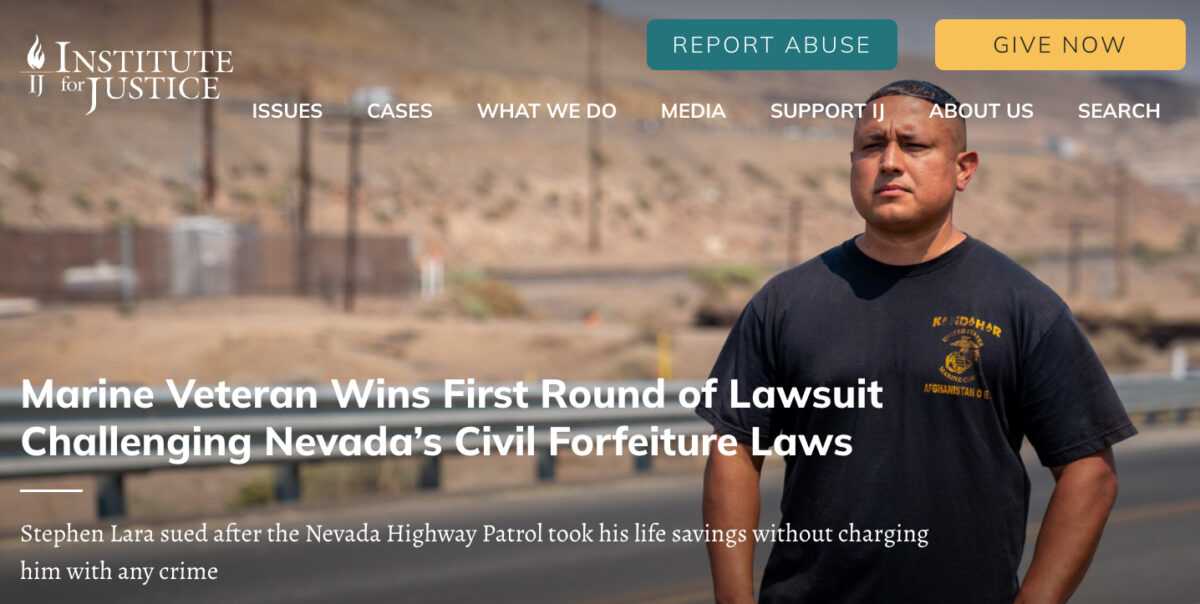The Institute for Justice has won a major civil forfeiture case in Nevada.
A district court ruled that the Nevada Highway Patrol — which had grabbed a man’s life savings despite no legitimate suspicion of wrongdoing — can’t try to circumvent state law against arbitrary civil forfeiture (stealing) via a loophole called “federal equitable sharing.”
Even when states reform their laws to prevent police from robbing innocent people, the “equitable sharing” program often “lets them give the forfeiture to a federal agency in exchange for a kickback,” IJ reports.
Gangsterish.
The victim in the present case was Stephen Lara. In February 2021, officers pulled Lara over, detained him for more than an hour, then confiscated the $86,900 in life savings that he happened to have with him, cash that he had saved to buy a house. (He didn’t trust banks.) The Patrol never accused him of any crime. But they tried to keep his money.
With the help of Institute for Justice, Lara got it back — six months later, soon after his case received major publicity. But he and IJ continued to pursue the case, hoping to obtain a ruling that the state constitution prohibits anyone from using the federal program to evade state law.
They have now obtained such a ruling.
If it is allowed to stand, the nightmare of civil forfeiture is over for innocent Nevadans. But the state may appeal. Then it’s up to the Nevada Supreme Court to affirm the obvious.
This is Common Sense. I’m Paul Jacob.
See all recent commentary
(simplified and organized)
See recent popular posts










